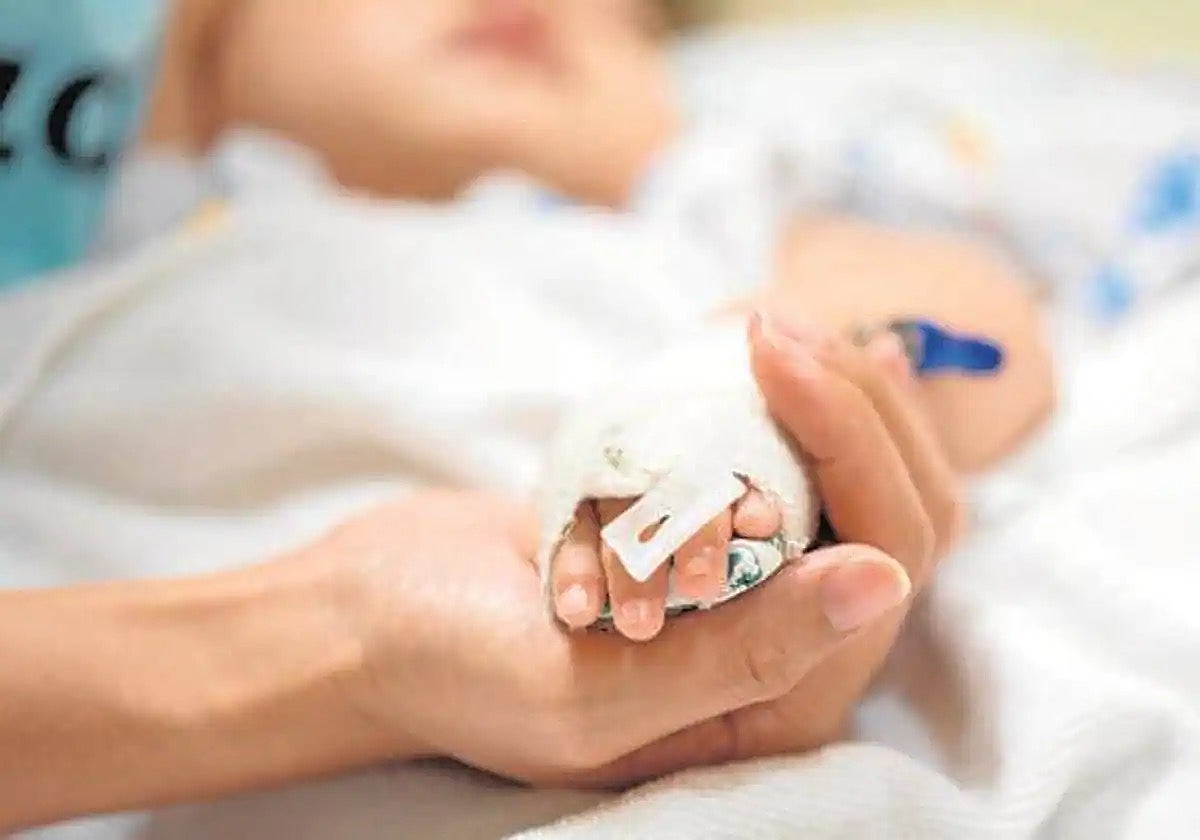Malaga doctor reveals the difficulty of diagnosing someone with a rare disease
Experts estimate there are between 7,000 and 8,000 types of rare diseases in the world and the Regional Hospital's Iván Pérez de Pedro is often the last resort for patients who have seen a long list of specialists to find out what they are suffering from
Iván Gelibter
Malaga
Friday, 1 March 2024, 10:21
Malaga's Regional Hospital doctor Iván Pérez de Pedro is often the last resort for patients who have seen a long list of specialists to find out what they are suffering from. The common symptom among many who see him is anguish, often the first feeling experienced by a person who has found out they are suffering from a disease classified as "rare". It is then Pérez de Pedro's job to determine what it may be and whether it can be treated, although in most cases, nothing can be done.
A rare disease is a broad and varied group of disorders which affect a small number of people in a population (less than 5 per 10,000 inhabitants). They are usually chronic and disabling, with the onset phase frequently in childhood. Pérez de Pedro pointed out there are some 7,000 or 8,000 types of rare diseases, although only a few of them are fully known.
"Currently there is an Andalusian registry that suggests some 15,000 people, but if we do the real calculations there are probably half a million people in Andalucía who suffer from a rare disease," added Pérez de Pedro. He said more are diagnosed each year, but not because people are getting sicker, but because new diseases are discovered every year. "If you don't know the disease, you will never suspect it. Now there are more screening techniques that give us positive results," he added.
Of all these diseases, most are genetic and diagnosed in childhood. In adults, it is more complex as they do not have the phenotypic characteristics of the disease. The doctor believes this will change in a few years' time as genetic methods make it easier to detect.
Last November, SUR hosted a conference in Malaga city by Dr Francesc Palau Martínez, who in addition to being the director of the genetic medicine and rare diseases service at Sant Joan de Déu Hospital, is also head of the CIBER research group on rare diseases at the Carlos III Institute and one of Spain's leading experts on rare diseases. Palau pointed out the diagnostic process is "dynamic and complex" and depends on current medical knowledge and the tests available.
On the challenges in diagnosis, Palau Martínez pointed out a lack of "appropriate" multidisciplinary care, but also a lack of quality information and support available at the time of diagnosis. "There is also dissatisfaction and loss of trust with medical and social services, and sometimes a certain rejection by health professionals," he said.
Diagnosis
The second phase of the process for someone who suffers from a rare disease is the diagnosis stage. "Just knowing a name is a relief because the uncertainty is over. And if there is no treatment, we try to see what can be done," said Pérez de Pedro.
Based on his experience, Palau Martínez said patients and their families are demanding an increase in the rate of diagnosis, and for this to be carried out earlier. He advocated the creation of international databases "of shared genotypes and phenotypes", in order to avoid "dispersion" in clinical knowledge. "It is interesting to have the clinical history with structured information, data traceability systems, and for these to be the property of the patient," he added.
Andalucía launched a plan for rare diseases in 2008 which attempted to propose a common strategy, but a lack of treatments available is still an issue.
